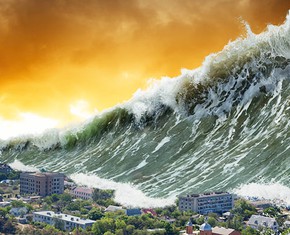The views expressed in our content reflect individual perspectives and do not represent the authoritative views of the Baha'i Faith.
Question: What is the truth of the question of reincarnation, which is believed by some people?
The object of what we are about to say is to explain the reality—not to deride the beliefs of other people; it is only to explain the facts; that is all. We do not oppose anyone’s ideas, nor do we approve of criticism.
Know, then, that those who believe in reincarnation are of two classes: one class does not believe in the spiritual punishments and rewards of the other world, and they suppose that man by reincarnation and return to this world gains rewards and recompenses; they consider heaven and hell to be restricted to this world and do not speak of the existence of the other world. Among these there are two further divisions. One division thinks that man sometimes returns to this world in the form of an animal in order to undergo severe punishment and that, after enduring this painful torment, he will be released from the animal world and will come again into the human world; this is called transmigration. The other division thinks that from the human world one again returns to the human world, and that by this return rewards and punishments for a former life are obtained; this is called reincarnation. Neither of these classes speak of any other world besides this one.
The second sort of believers in reincarnation affirm the existence of the other world, and they consider reincarnation the means of becoming perfect—that is, they think that man, by going from and coming again to this world, will gradually acquire perfections, until he reaches the inmost perfection. In other words, that men are composed of matter and force: matter in the beginning—that is to say, in the first cycle—is imperfect, but on coming repeatedly to this world it progresses and acquires refinement and delicacy, until it becomes like a polished mirror; and force, which is no other than spirit, is realized in it with all the perfections.This is the presentation of the subject by those who believe in reincarnation and transmigration. We have condensed it; if we entered into the details, it would take much time. This summary is sufficient. No logical arguments and proofs of this question are brought forward; they are only suppositions and inferences from conjectures, and not conclusive arguments. Proofs must be asked for from the believers in reincarnation, and not conjectures, suppositions and imaginations.
But you have asked for arguments of the impossibility of reincarnation. This is what we must now explain. The first argument for its impossibility is that the outward is the expression of the inward; the earth is the mirror of the Kingdom; the material world corresponds to the spiritual world. Now observe that in the sensible world appearances are not repeated, for no being in any respect is identical with, nor the same as, another being. The sign of singleness is visible and apparent in all things. If all the granaries of the world were full of grain, you would not find two grains absolutely alike, the same and identical without any distinction. It is certain that there will be differences and distinctions between them. As the proof of uniqueness exists in all things, and the Oneness and Unity of God is apparent in the reality of all things, the repetition of the same appearance is absolutely impossible. Therefore, reincarnation, which is the repeated appearance of the same spirit with its former essence and condition in this same world of appearance, is impossible and unrealizable. As the repetition of the same appearance is impossible and interdicted for each of the material beings, so for spiritual beings also, a return to the same condition, whether in the arc of descent or in the arc of ascent, is interdicted and impossible, for the material corresponds to the spiritual.
Nevertheless, the return of material beings with regard to species is evident; so the trees which during former years brought forth leaves, blossoms and fruits in the coming years will bring forth exactly the same leaves, blossoms and fruits. This is called the repetition of species. If anyone makes an objection saying that the leaf, the blossom and the fruit have been decomposed, and have descended from the vegetable world to the mineral world, and again have come back from the mineral world to the vegetable world, and, therefore, there has been a repetition—the answer is that the blossom, the leaf and the fruit of last year were decomposed, and these combined elements were disintegrated and were dispersed in space, and that the particles of the leaf and fruit of last year, after decomposition, have not again become combined, and have not returned. On the contrary, by the composition of new elements, the species has returned. It is the same with the human body, which after decomposition becomes disintegrated, and the elements which composed it are dispersed. If, in like manner, this body should again return from the mineral or vegetable world, it would not have exactly the same composition of elements as the former man. Those elements have been decomposed and dispersed; they are dissipated in this vast space. Afterward, other particles of elements have been combined, and a second body has been formed; it may be that one of the particles of the former individual has entered into the composition of the succeeding individual, but these particles have not been conserved and kept, exactly and completely, without addition or diminution, so that they may be combined again, and from that composition and mingling another individual may come into existence. So it cannot be proved that this body with all its particles has returned; that the former man has become the latter; and that, consequently, there has been repetition; that the spirit also, like the body, has returned; and that after death its essence has come back to this world.
Abdu’l-Baha (Some Answered Questions, pp 282-289)
















Comments
Sign in or create an account
Continue with Googleor